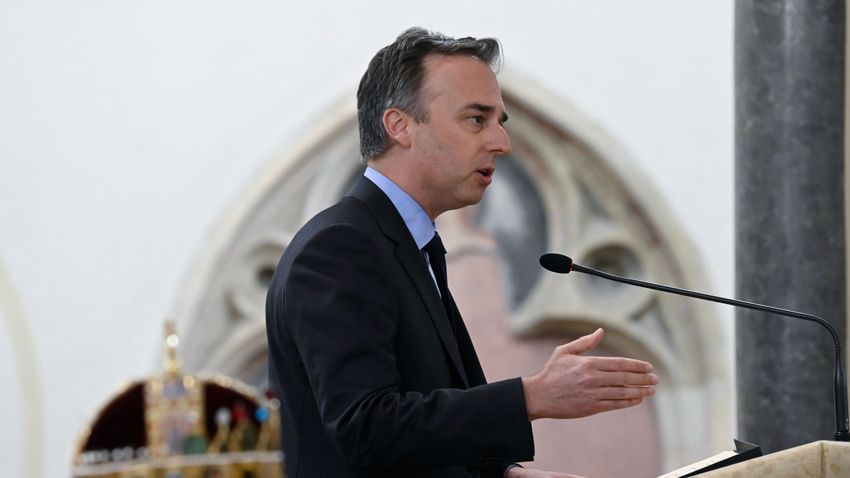The U.S.’s decision to launch sanctions against the Budapest-based International Investment Bank (IIB) and its three top officials is the latest sign that the U.S. is ratcheting up its pressure on Hungary to renounce its pro-peace stance on the war in Ukraine.
U.S. Ambassador to Hungary David Pressman announced the sanctions on Wednesday against Hungary at the same time that he detailed a range of new sanctions against more than 50 institutions and individuals, with the majority of the sanctions focused on Russia. The U.S. diplomat argues the bank is controlled by Russian interests.
In reaction to the dramatic escalation against Hungary, Sámuel Ágoston Mráz, the head of Hungary’s Nézőpont Institute, told Hungarian newspaper Magyar Nemzet that there is a strategic difference of opinion between the U.S. and Hungarian governments, as the current U.S. administration is pro-war, while the Hungarian government is pro-peace.
The U.S. sanctions against an EU member and a NATO ally mark a new low point in relations between the United States and Hungary, and while the war in Ukraine looms large, tensions have long been in place over issues like Hungary’s stance against mass immigration.
“The actual significance of the U.S. ambassador’s announcement is minimal. What we can see is that the United States continues to exert pressure on Hungary… The purpose of this is to change its pro-peace position,” said Sámuel Ágoston Mráz.
One of the IIB officials targeted by the U.S. sanctions is Hungarian citizen Imre Laszlóczki, who is the former Hungarian ambassador to Kazakhstan and Azerbaijan, along with two Russian citizens living as residents in Russia. The U.S. argues that the IIB offers a platform for Russia.
“The presence of this opaque Kremlin platform in the heart of Hungary threatens the security and sovereignty of the Hungarian people, their European neighbors and their NATO allies,” said Pressman during the press conference.
According to the head of the Nézőpont Institute, the current sanctions announcement is a continuation of the poster campaign launched recently by the U.S. embassy. The campaign, which is designed to garner support for Ukraine from a skeptical Hungarian population, states that Hungarians demanded the departure of Soviet troops during the 1956 anti-Communist revolt and contains the line: “There can only be peace in Ukraine if the invading Russian army withdraws.”

As Remix News has previously reported, the U.S. and other Western powers had helped back the Hungarian uprising only to withdraw support and allow Soviet forces to crush it, resulting in hundreds of deaths and tens of thousands of Hungarians fleeing the country.
However, the poster campaign is only one part of a multifaceted approach by the Biden administration to taking on Orbán’s government. Mráz believes that the Americans may use similar means in the future, with the “aim of changing the pro-peace, anti-war position of the Hungarian government.”
There are also signs that the Biden administration is backing a new left-wing party to challenge Orbán.
“There is a strong suspicion that certain circles are building a new anti-Orbán left-wing party… and it seems that the U.S. embassy is also assisting in this,” said Mráz.
He is referring to the U.S. embassy’s recent decision to invite right-wing politician Márton Gyöngyösi, who is a member of the rival Jobbik party. The head of the Nézőpont Institute said that the Jobbik politician is well-known for his past anti-Semitic remarks, but the Americans are looking past this because they see a chance to remove Orbán from power through Jobbik. The right-wing party previously joined a coalition with left-wing parties to challenge Orbán in last year’s April elections.
Remix News has previously reported that this mostly left-wing coalition — plus Jobbik — received millions in funding from the United States, despite such foreign funding being illegal in Hungary. The secret funding appeared to be an effort to back the opposition party, but it was unsuccessful. Orbán’s Fidesz party once again won a two-thirds majority in parliament and over 50 percent of the vote in April of last year.





